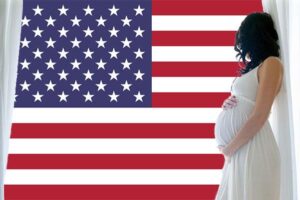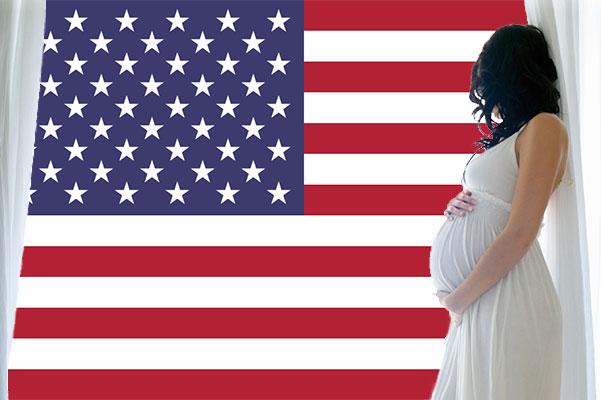Should Donald Trump’s recent plan to end birthright citizenship be successful, how will it affect the nationality of children born to immigrants?
By Evie Jeang, Family Lawyer

Under current laws, when a baby is born in the United States to a gestational mother who is an American citizen, the baby is automatically extended American citizenship. The same holds true for children born in this country to undocumented immigrants. The Fourteenth Amendment provides that, “All persons born or naturalized in the United States, and subject to the jurisdiction thereof, are citizens of the United States and of the State wherein they reside.”
History of Birthright Citizenship Rulings
Both the Supreme Court and lower courts have upheld challenges to birthright citizenship.
In 1898, in the United States v. Wong Kim Ark, the Supreme Court ruled that the Fourteenth Amendment guarantees birthright citizenship to children born to immigrant parents in the United States. Wong, born in San Francisco, had been prevented from re-entering the U.S. by immigration agents who argued that he was not a citizen because his parents were Chinese. The Supreme Court ruled in his favor, declaring that “citizenship by birth is established by the mere fact of birth under the circumstances defined in the Constitution.” In other words, as long as you are born in the United States, you are a citizen.
A more recent Supreme Court case, Plyler v. Doe, decided in 1982, held that undocumented school-age children (who were U.S. citizens through the birthright process) were entitled to free public education, and stated that the Fourteenth Amendment’s phrase within its jurisdiction “cannot be distinguished on the asserted ground that persons who have entered the country illegally are not within the jurisdiction of a state even if they are present within its boundaries and subject to its laws.”
In addition to the Supreme Court’s rulings, the lower courts have not only upheld the legal rights of children born to recent undocumented citizens, but have held that their non-citizen parents would not be deported, mainly on hardship exemptions.
How Ending Birthright Citizenship in America Could Affect Surrogacy
Many Chinese nationals come to the U.S. to employ gestational surrogates to carry their babies because it is both legal and ethical in this country. Conversely, in China, there is strong legal and cultural opposition to surrogacy. Through the current birthright citizenship law, the children born here through international surrogacy are eligible to receive U.S. benefits. A child with U.S. citizenship is also eligible for dual residency in countries that recognize this concept.
If birthright citizenship becomes a notion of the past, family law practices are likely to encounter birthright citizenship issues when representing international clientele in this country. Today, if a child is born in San Francisco to foreign nationals, for example, the child would automatically be a U.S. citizen. Under Trump’s proposed plan, that would not be the case.
There is certain to be legal and public pushback to an executive action removing birthright citizenship in America. However, family law firms would be wise to be prepared for the possibility.
If the current laws on birthright citizenship are repealed, children of undocumented immigrants or foreign nationals will face new legal issues, such as the possibility of legal guardianships over minor children who are U.S. citizens but children of undocumented immigrants. Legal practices will see increases in matters dealing with establishing legal guardianships over these children.
A Taiwanese-American litigator practicing for nearly 15 years, Evie P. Jeang, Founder and Managing Partner of Ideal Legal Group Inc. and Surrogacy Concierge, LLC, focuses her practice on helping families and couples in a range of matters, including child custody and support, guardianship, divorce, legal separation, division of property and restraining orders. Ms. Jeang is one of the few attorneys who understand firsthand how to handle the complex matters of international family law. www.ideallegalgroup.com
Published on:







2 Comments
barry
can not have everyone in the world qualifying for American benefits
can not reward sneaking into this country
also your cases cited are selected to support your point but not exhaustive of the legal concepts here in play and are a political position
if one is here legally then fine but illegal or a tourist no automatic citizenship
also you might also have heartburn when sponsorship actually becomes what it means –you bring them you pay not the American taxpayer as we have enough Americans born here to American parents that have needs unmet
and my taxes are high enough now
csr@BorderTransportationSystem.com
As an author of fine touring and other manuals sold on Amazon.com/Kindle under the name William (Bill) C. McElroy, I am in the process of writing ‘American Racism Dominates Our History’ a book that should be read by all.